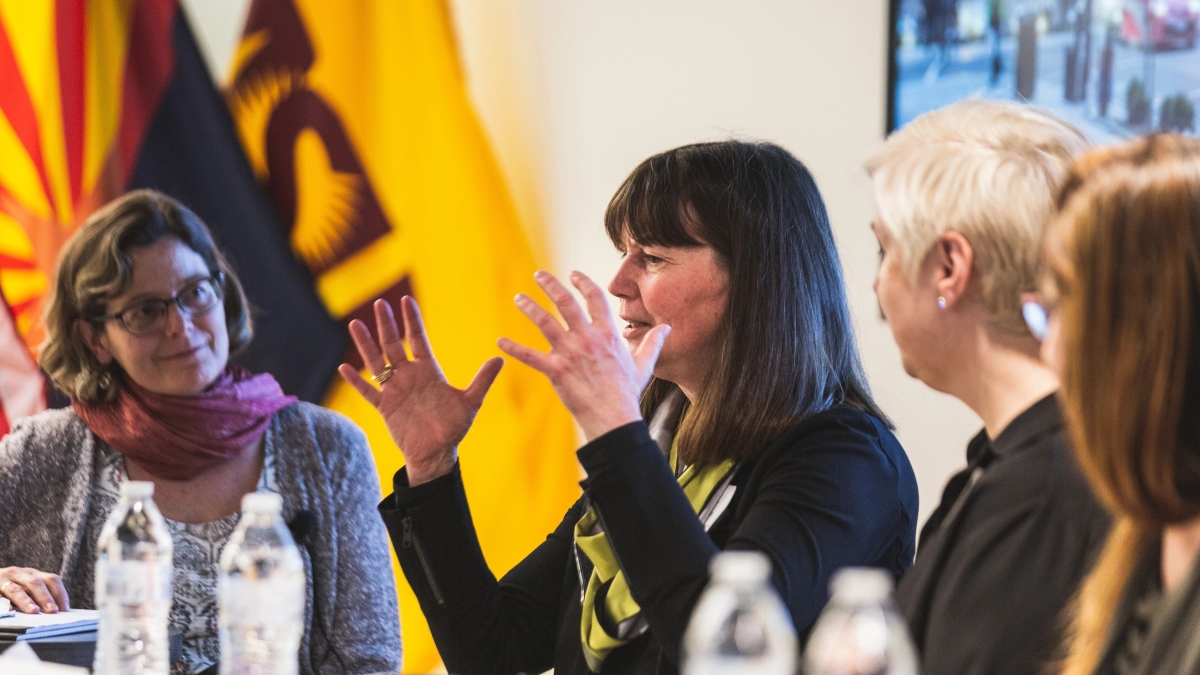NEH Summer Institute creates space for humanists to engage in the sciences

Our SHARED Future is a four-week, residential NEH Summer Institute focused on building capacity to teach and do humanities with impact on emerging developments in bioengineering. The institute will run from June 12 to July 7 on ASU's Tempe campus. Photo courtesy the Lincoln Center for Applied Ethics
What does it mean to be human? Throughout history, philosophers, scientists and artists have all debated this question, but new developments in the field of bioengineering and emerging technologies may fundamentally shift the conversation.
Advancements in areas such as stem cell research, genome editing and neural interface design are dramatically changing our preconceptions of what human society and our shared future could look like. The Lincoln Center for Applied Ethics and the Center for Biology and Society at Arizona State University have received a joint grant from the National Endowment for the Humanities to explore this very subject, and are inviting instructors to join this paid opportunity in the summer of 2023.
“This rapidly developing field raises all kinds of ethical questions — questions that should be deliberated upon by those with some subject matter expertise,” said Jason Robert, associate professor for the School of Life Sciences and co-director of the institute. “This institute will provide exactly that kind of expertise.”
From June 12 to July 7, through the NEH Summer Institute, Our SHARED Future: Science, Humanities, Arts, Research Ethics, and Deliberation will take scholars on a journey of critical engagement over issues of novel technologies, through the lenses of ethics, history, philosophy, literature and film.
“The NEH Summer Institute is aimed at college and university humanities teachers who want to integrate real-life science and technology discussions into their courses,” said Robert.
Over the course of four weeks, humanists will also gain firsthand experience on what it’s like to do science — from editing the bacterial genome to experimenting with neuromodulation techniques to improve cognitive abilities.
He continued, “Students — especially in general education courses — will benefit from professors who can speak confidently and competently about science and technology.”
Faculty are invited to read more about this initiative and apply. The deadline for applications is Friday, March 3.
More Science and technology

Study reveals genetic insight into desert survival
The deserts of the American Southwest are home to the Mojave and Sonoran desert tortoises, two seemingly similar yet genetically…

Study reveals lasting effects of common weed killer on brain health
Environmental exposure to toxins in the air, water or certain chemicals can increase the risk of ill health effects, including to…

ASU grad to use science to get an edge on crime
Editor’s note: This story is part of a series of profiles of notable fall 2024 graduates.As a child growing up in Pinetop,…